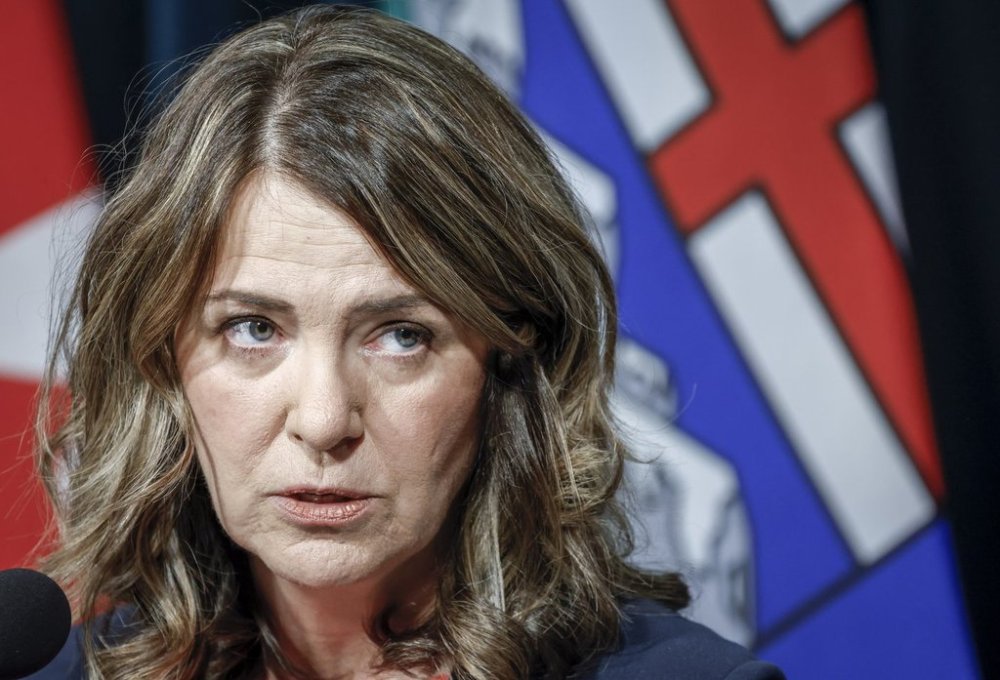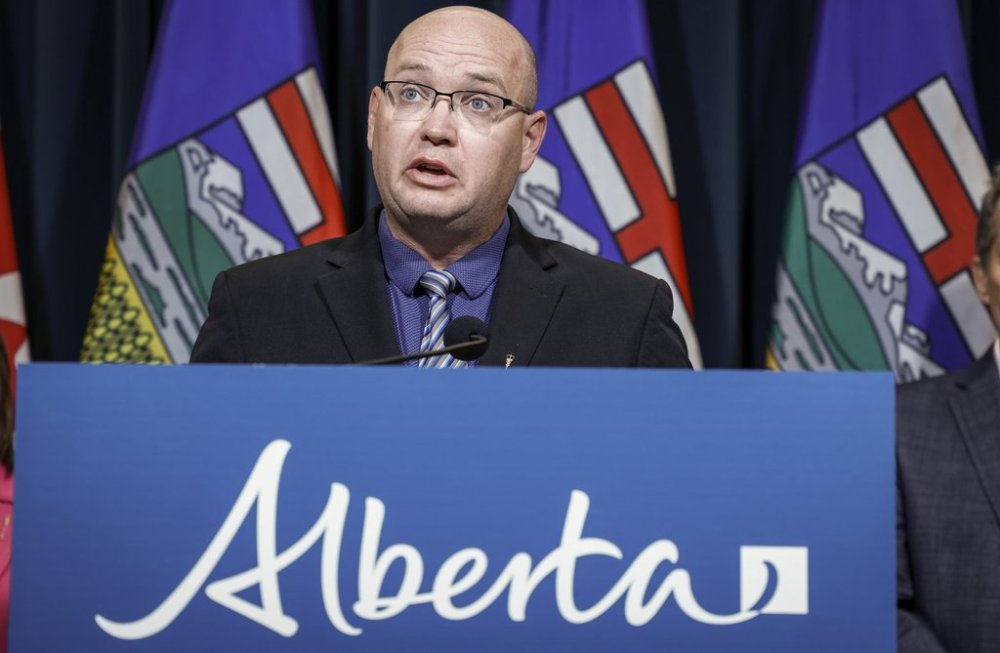Five more Alberta UCP legislature members facing recall, bringing total to 14
Advertisement
Read this article for free:
or
Already have an account? Log in here »
We need your support!
Local journalism needs your support!
As we navigate through unprecedented times, our journalists are working harder than ever to bring you the latest local updates to keep you safe and informed.
Now, more than ever, we need your support.
Starting at $15.99 plus taxes every four weeks you can access your Brandon Sun online and full access to all content as it appears on our website.
Subscribe Nowor call circulation directly at (204) 727-0527.
Your pledge helps to ensure we provide the news that matters most to your community!
To continue reading, please subscribe:
Add Brandon Sun access to your Free Press subscription for only an additional
$1 for the first 4 weeks*
*Your next subscription payment will increase by $1.00 and you will be charged $20.00 plus GST for four weeks. After four weeks, your payment will increase to $24.00 plus GST every four weeks.
Read unlimited articles for free today:
or
Already have an account? Log in here »
EDMONTON – Elections Alberta has issued recall petitions against five more members of Premier Danielle Smith’s United Conservative Party caucus, bringing the total to 14.
The new total means that almost a third of the 47 United Conservative members in the legislature are now engaged in the recall process, potentially threatening the balance of power in the house.
Tuesday’s approvals include petitions for cabinet ministers Searle Turton and Nathan Neudorf.

Also facing petitions are backbenchers Jason Stephan, Jackie Lovely and Glenn van Dijken.
Under Alberta’s Recall Act, any person eligible to vote in a riding can ask to begin collecting signatures to try to get their legislature member expelled if they feel the member is failing at their duties.
All five of the new petitioners, in statements to Elections Alberta, say they feel their legislature members have failed to advocate for their communities and, in some cases, have not been reachable.
Some also refer to their member’s support of the government using the notwithstanding clause to end the recent provincewide teachers strike as being reason enough.
“His behaviour constitutes dereliction of duty to his constituents, especially as he has placed toeing the party line above protecting the rights of his constituents,” wrote the petitioner looking to oust van Dijken.
In the case of Stephan, petitioner Nicole Green wrote that the second-term MLA should also be recalled for supporting a “separatist agenda” and having “disdain” for French speakers.
“His focus on divisive, party-driven issues, instead of local priorities like affordability and health care, also shows he is an ineffective MLA,” Green wrote.
Stephan, in a statement to Elections Alberta, fired back.
“This petition for recall will fail,” he wrote, citing a number of accomplishments as a member of the legislature including money for post-secondary schools and health care in the city of Red Deer.
“Moreover, I have sought to, boldly and respectfully, speak the truth as I best understand it, even if some do not like it, seeking freedom and prosperity for Albertans.”
The reasoning behind the new petitions echo themes seen in the first nine that were issued, especially accusations that the members have been hard to reach, have ignored local concerns or because they voted to use the Charter’s notwithstanding clause to end the teachers strike.
The 14 members being targeted represent constituencies across the province, ranging from Grande Prairie in the north to Lethbridge in the south. Five represent the Calgary area.
Smith and her UCP caucus have argued the petitioners aren’t using the recall system appropriately, saying it should be saved for serious wrongdoing not disagreements over government policy.
Some ministers have gone further and said the recent outburst of recall petitions is the work of an organized group looking to topple the government.
Service Alberta Minister Dale Nally, who had a petition against him approved Monday, has said he believes the constituent challenging him is a proxy for the group, something the petitioner denies.

Mona O’Neill, the petitioner looking to oust Turton, took offence to the characterization, saying it was an “easy excuse” for the government.
“I made this decision sitting on my couch at home watching the legislative assembly on TV,” she said in an interview. “This has nothing to do with the Alberta Federation of Labour or the NDP or any type of extreme political party.”
“This is just me getting upset enough that I said, ‘enough.’
“If he’s not going to respond to emails and he’s not going to make himself available to constituents, then maybe he’ll listen to this.”
Smith has also said changes to the Recall Act are being discussed and that she has concerns about online fundraising and even foreign interference driving the campaigns. To date she hasn’t provided specifics or said when those changes would be enacted.
Stephan, speaking to reporters at the legislature Tuesday, said that despite being one of the 14 campaigned against, he thought the recall process provided a “great check and balance.”
Other high-profile targets facing petitions are Education Minister Demetrios Nicolaides and Speaker of the house Ric McIver.
The recall petition process allows those behind each campaign to collect signatures in their constituency over three months and, if they collect enough, a vote is held on whether the MLA keeps their seat.
It’s a long, multi-stage process, but if all 14 MLAs are defeated in constituency votes, it would give the Opposition NDP — with 38 members — a majority of the seats in the 87-seat house.
NDP Leader Naheed Nenshi said if it comes down to it, he thinks the premier would call an election before losing majority government status.
“I don’t know how successful these petitions will be, but certainly they are incredibly destabilizing,” Nenshi said. “They show that we’ve got a government that has lost all grip on reality and is completely out of touch with its citizens.”
This report by The Canadian Press was first published Nov. 25, 2025.
